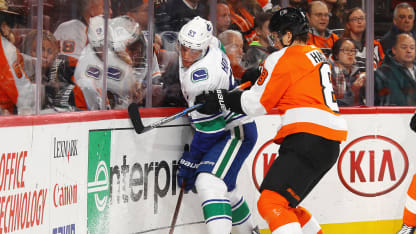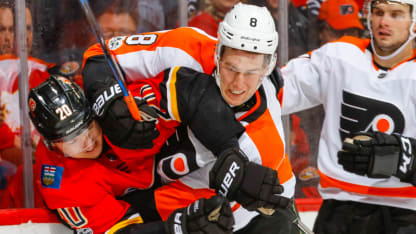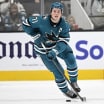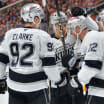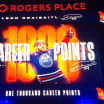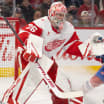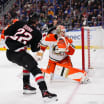"A lot of the times when he realizes he doesn't have any options he holds onto the puck against the boards and waits for help and that's big," Flyers goalie Brian Elliott said of Hagg. "If you're panicking to make a play, you force giveaways and he's the type of guy to stay calm, patient and let the game happen.
"He also plays with that edge that if you come at him, he's got a big body and can put you down, too."
Hagg credits his two seasons with MODO in the Swedish Hockey League and his three-plus seasons for Lehigh Valley of the American Hockey League as pivotal stages in his development.
"Playing in the SHL allowed me to go head-to-head against men at a young age and I learned a lot from that being in the locker room and being with former NHL guys like Samuel Pahlsson," Hagg said. "That was huge for me to see how they prepared every single practice and game."
Hagg played 77 SHL regular-season games and had one goal and six assists. It wasn't until he came to North America, however, that he began to reap the benefits of playing a strong, physical game.
"I always did like to give or take a hit but it wasn't always a part of my game; that started when I came over here," Hagg said with a grin. "When I was 19, I tried to use my body as much as I could because I noticed how effective it was."
Hagg said playing in North America as a teenager also prepared him for the rigors of being effective on a smaller ice surface, something he knew all about but never experienced.
